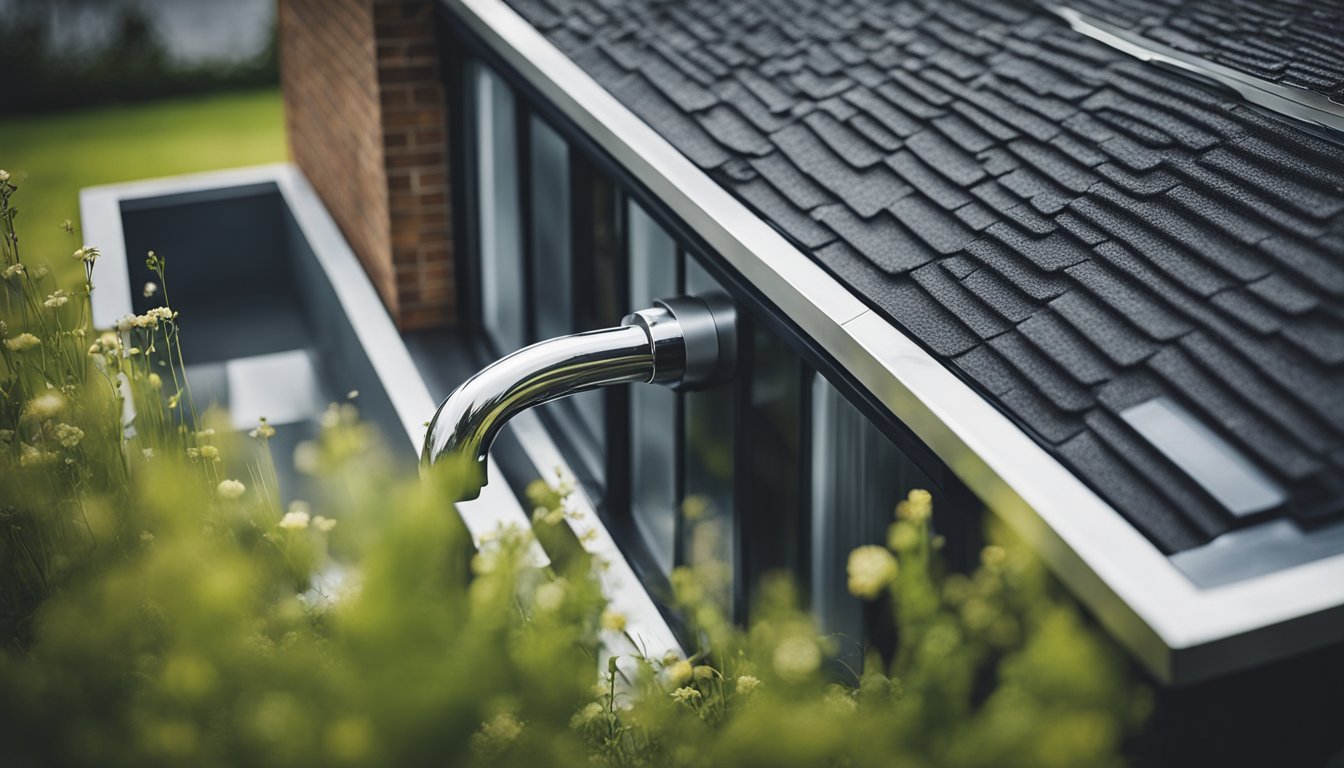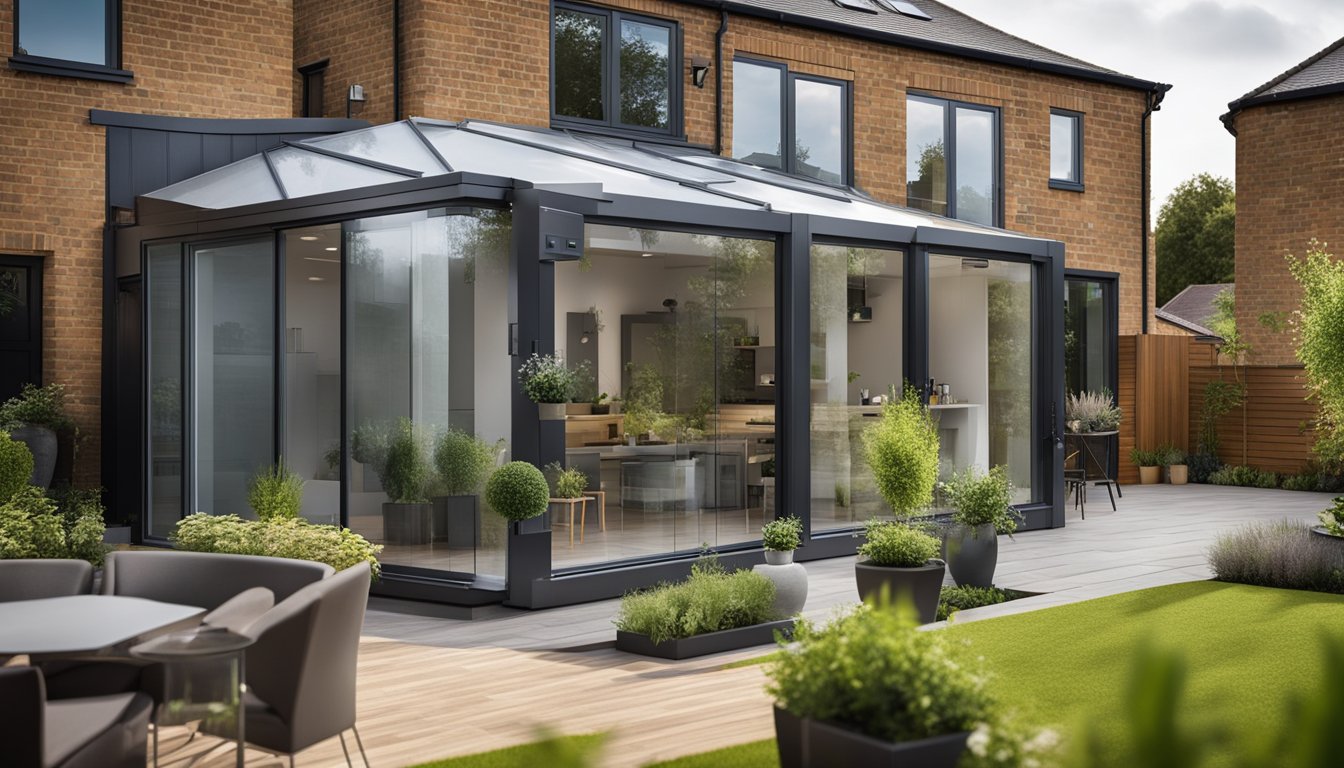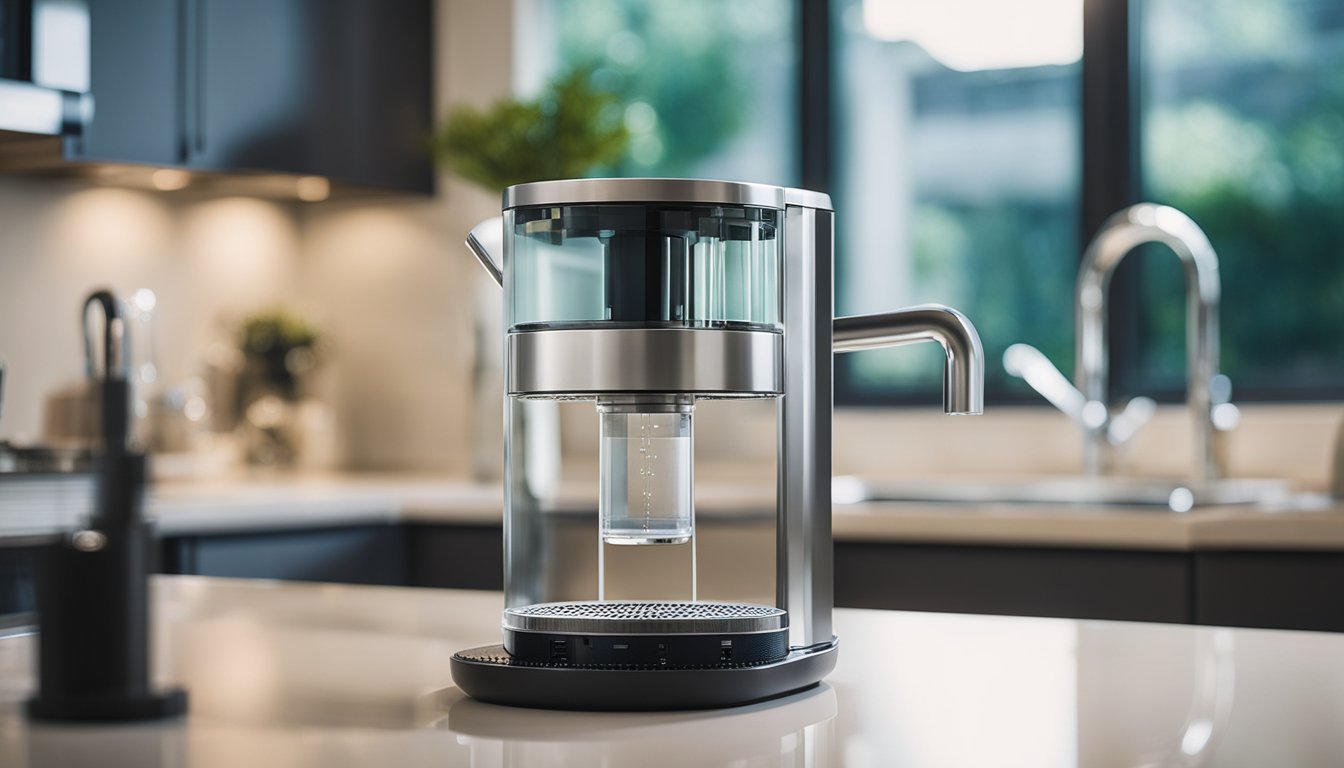Late updated: 06 Nov 2024 10:11
Written by: Eleanor Hartman
Innovative Water Conservation Solutions for UK Homes: Effective Strategies for Sustainability
Water scarcity is no longer a distant concern but a pressing reality for UK homes. As the demand for water grows, so too does the urgency to find innovative solutions that can be seamlessly integrated into our daily lives. Exploring advanced strategies for water conservation not only helps tackle this challenge but also contributes to sustainable development and environmental preservation.

In our quest to mitigate the impending water crisis, we must harness the power of technology to drive change. Smart metering systems and water-efficient home designs are now at the forefront, providing homeowners with effective ways to monitor and reduce their consumption. These innovations are not just about conserving water but also about reimagining our approach towards sustainability and our role in protecting natural resources.
Key Takeaways
- Innovative solutions offer effective water conservation in UK homes.
- Technology integration is crucial for sustainable water management.
- Smart systems empower us to monitor and reduce water use.
Water Conservation Techniques in UK Homes
Water conservation in UK homes is essential as we face ongoing challenges with water scarcity and resource management. Through innovative technologies and practices, we can enhance water efficiency and ensure sustainable use of our water resources. Our focus here includes rainwater harvesting, greywater recycling, high-efficiency fixtures, and smart irrigation practices.
Rainwater Harvesting
Rainwater harvesting systems are becoming increasingly popular in the UK due to their ability to reduce dependency on the main water supply and decrease stormwater runoff. These systems capture rainwater from roofs, which is then stored in tanks for future use. This process is not only beneficial for toilet flushing but also for watering gardens and laundry usage.
The implementation of rainwater harvesting systems can significantly contribute to sustainable construction practices. By capturing and reusing rainwater, we utilise a renewable resource that is often wasted. Moreover, this method supports water efficiency by reducing the demand on conventional water sources, thereby addressing issues of water scarcity and management.
Greywater Recycling
Greywater recycling systems offer an effective means of enhancing water efficiency in homes. Greywater, which is wastewater from sinks, baths, and washing machines, can be treated and reused for non-potable purposes such as toilet flushing and garden irrigation. This approach contributes to reducing overall water consumption and promotes sustainable water management.
The utilisation of greywater recycling requires specific systems that filter and clean the water before it is reused. These systems help us make use of an otherwise wasted resource and align with building regulations focused on water conservation. Implementing greywater recycling can have a substantial impact on reducing household water usage and supporting conservation methods.
High-Efficiency Fixtures and Appliances
High-efficiency fixtures and appliances are crucial for minimising water use without compromising performance. Innovations such as low-flow toilets, water-efficient showerheads, and washing machines with advanced technology can drastically cut down on water usage. These appliances are designed to function effectively while reducing the amount of water consumed.
Adopting these fixtures helps us adhere to water efficiency strategies and align with resource management goals. Many of these products are now common in the UK, supported by government incentives and building regulations. By integrating high-efficiency appliances, households can save considerable amounts of water, contributing to broader conservation efforts.
Smart Irrigation Practices
Smart irrigation systems employ technology to optimise water use in gardens and landscapes. These systems can adjust watering schedules based on weather conditions, soil moisture, and plant requirements, ensuring that water is only used when absolutely necessary. This precision in irrigation reduces water waste and promotes conservation.
With the advancement of smart technologies, irrigation systems have become more intelligent and user-friendly. They can be programmed and controlled remotely via smartphones or computers, allowing homeowners to manage water usage effectively. Implementing smart irrigation practices supports sustainable landscaping and helps mitigate water scarcity concerns in the UK.
Integrating Technology for Water Management

Technological advancements are key to addressing the growing water needs of UK homes. By embracing smart systems and innovative supply solutions, we can make significant strides in water conservation and sustainability, ensuring a balanced environmental impact.
Smart Water Management Systems
Smart water management systems are transforming how we use resources at home. Through devices like smart meters, we can monitor water usage in real time, allowing for immediate adjustments and conservation efforts. These systems not only track consumption but also provide insights into usage patterns, helping to identify waste and inefficiencies.
Integrating smart technology into water systems facilitates remote control and management, offering convenience and efficiency. Users can receive alerts about leaks or unusual water usage, reducing waste and lowering costs. This technology empowers homeowners to manage water resources more sustainably and align with broader environmental goals.
Innovations in Water Supply
Innovation in water supply solutions is crucial for a sustainable future. Companies are exploring methods such as rainwater harvesting and greywater recycling to supplement traditional sources. By capturing rainwater, homes can reduce reliance on mains water for non-potable uses like garden irrigation.
Greywater recycling systems treat and repurpose water from sinks and showers, offering an additional conservation method. Such innovations reduce the extraction burden on natural sources while promoting efficient use. Emerging technologies, including AI-driven systems, optimise supply by predicting demand and adjusting flow, ensuring that water supply is responsive to daily and seasonal needs. These advancements underscore the potential of technology in achieving resource efficiency and resilience in water management.
Frequently Asked Questions

Water conservation is crucial for UK households, especially given the current and projected water shortages. By incorporating effective water-saving devices, reusing greywater, and leveraging smart technologies, we can significantly reduce domestic water consumption. Let's explore some key questions about making our homes more water-efficient.
What are the most effective water-saving devices for domestic use?
There are several devices that excel in saving water. Aerated showerheads maintain pressure while reducing water flow. Tap aerators and low-flow taps also help lower water usage without compromising efficiency. Water-efficient dishwashers and washing machines consume less water per cycle, making them excellent choices for sustainable home solutions.
How can UK households reuse greywater to conserve water?
Greywater systems recycle water from baths, sinks, and washing machines for use in gardens or toilets. Households can install simple systems that filter and reroute greywater safely. By implementing these systems, we reduce freshwater demand and lessen the strain on local water resources, enhancing sustainable living practices.
What are the best practices for rainwater harvesting in urban UK homes?
Urban homes can use water butts to capture and store rainwater from roofs. This water can then be used for gardens, cleaning, or washing cars. Positioning water butts beneath downpipes maximises collection efficiency. Understanding local regulations and ensuring storage systems are properly maintained will improve the effectiveness of rainwater harvesting.
Can smart home technologies contribute to water conservation, and how?
Smart home technologies play a significant role in conserving water. Devices equipped with sensors can detect leaks early, preventing wasted water. Smart meters provide real-time usage data, encouraging mindful consumption. Automated irrigation systems adjust watering based on weather forecasts, ensuring efficient use of water in gardens.
What are simple day-to-day actions UK residents can take to reduce water usage?
Daily habits can lead to substantial water savings. Turning off the tap while brushing teeth and taking shorter showers are easy practices. Fixing leaks promptly and running dishwashers or washing machines only with full loads reduce unnecessary consumption. Using a watering can instead of a hose for plants also helps conserve water.
How does the installation of a dual-flush toilet impact home water conservation?
Dual-flush toilets provide two flushing options—full and half. This allows users to choose an appropriate flush for waste, significantly cutting down water usage as compared to traditional toilets. Installing dual-flush toilets leads to lower water bills and a reduced environmental footprint, making them a smart choice for eco-friendly homes.